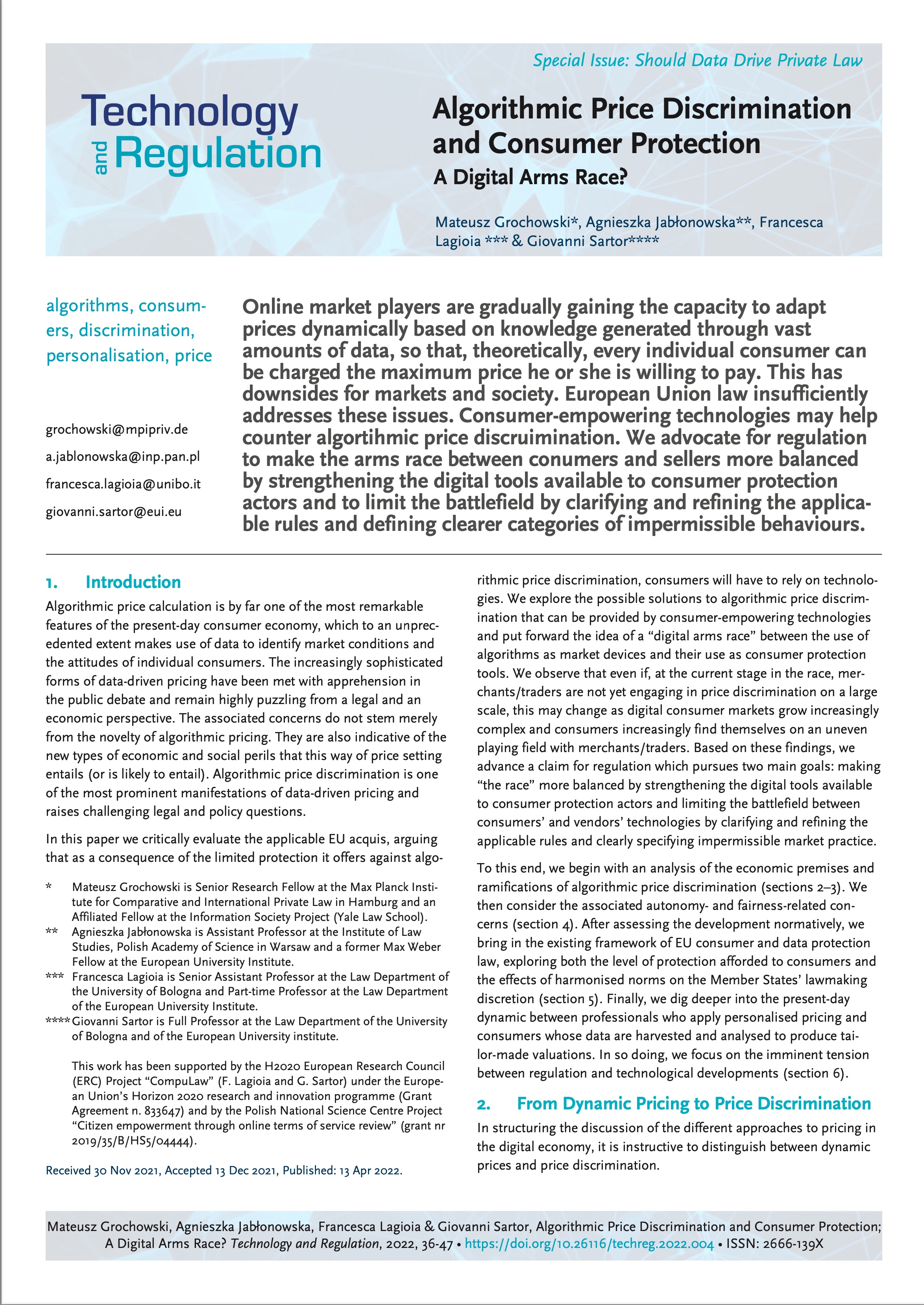Algorithmic Price Discrimination and Consumer Protection
A Digital Arms Race?
DOI:
https://doi.org/10.71265/kd9w2w17Keywords:
algorithms, consumers, discrimination, personalisation, priceAbstract
This paper investigates the practice of algorithmic price discrimination with a view to determining its impact on markets and society and making a possible plea for regulation. Online market players are gradually gaining the capacity to adapt prices dynamically based on knowledge generated through vast amounts of data, so that, theoretically, every individual consumer can be charged the maximum price he or she is willing to pay. The article discusses the downsides of data-driven price discrimination. It considers the extent to which such downsides are mitigated by European Union law, and what role remains for national provisions and consumer-empowering technologies. We find that the existing EU provisions address price discrimination only marginally and that full harmonisation, a goal pursued through many acts regulating consumer markets, restricts the Member States’ margin for independent legislation. Accordingly, consumer protection against algorithmic pricing may rely, in practice, on consumer-empowering technologies and initiatives. We investigate the implications of this state of affairs, arguing that an unbalanced “digital arms race” between the use of algorithms as market devices on the one hand, and their use as consumer protection tools on the other, does not ensure consumer protection. Based on these findings, we advance a claim for regulation which pursues two main goals: first, to make the race more balanced by strengthening the digital tools available to consumer protection actors and, second, to limit the battlefield by clarifying and refining the applicable rules and defining clearer categories of impermissible behaviours.
Downloads

Downloads
Published
Issue
Section
License
Copyright (c) 2022 Mateusz Grochowski, Agnieszka Jabłonowska, Francesca Lagioia, Givanni Sartor

This work is licensed under a Creative Commons Attribution-NonCommercial-NoDerivatives 4.0 International License.






